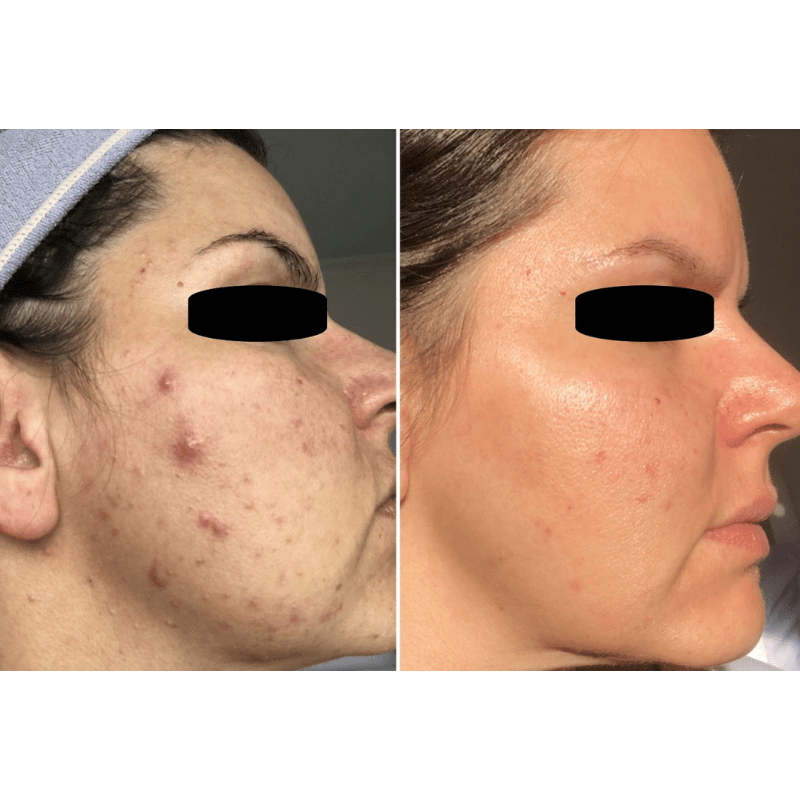Breakouts are the absolute worst! They always seem to come at the wrong time, as if there could be a right time, they take forever to go away and they often leave marks and scars. Also, it’s next to impossible to avoid picking and squeezing them, which is incredibly satisfying in the moment, but only seems to make them last longer and even more likely to scar. The good news is that there is new information that may make the all the difference in helping to get and keep your skin clear and acne-free.
First the facts:
Acne is a chronic condition that can start as young as at birth and as late as in your 50’s. One big myth is that you will outgrow your acne after your teenage years. I’ve had many patients who come in with acne in their 30’s or older, wondering how it’s possible to get acne now, when they never even had acne in their teens or 20’s, and so upset because they are getting pimples and wrinkles! We now know that acne is an inflammatory condition and while bacteria plays a role, the solution is not to wipe out the bacteria, but rather to support a healthy skin biome (which is all the microbes, mostly bacteria, that live on the skin).
Myths Busted:
1. Myth: Acne is due to eating greasy foods: That is a myth. For the longest time, we had no idea about the effect of food on acne, but we are now seeing that certain foods, not greasy food, but rather highly processed foods and foods high in sugar can exacerbate acne by increasing inflammation.
Fact: If you are prone to acne, and if acne medications are not working, you could try dropping dairy (aka cow’s milk and cheese) from your diet. The foods to choose for acne clear skin are foods high in antioxidants like a whole-food plant-based diet as much as possible.
2. Myth: Using rubbing alcohol will help dry out the pimple: That is a myth, and a dangerous one since it can irritate and dry out your skin but has zero effect on the bacteria, c. acnes, that causes acne. The water will be dried out of your skin and that will promote increased oil production which will make your acne worse in the long run.
Fact: Instead, use salicylic acid or benzoyl peroxide based cleansers and look gentle spot treatment like the Acne Conditioning Gel to help treat individual spots without drying out or stripping your skin.
3. Myth: Acne is due entirely to bacteria: There is definitely a bacterial component but that bacteria, known as c. acnes, may also have benefits for your skin and is a part of your skin’s microbiome. Research is showing that there are different strains of c. acnes and that some are better than others for your skin. In the future we may even be doing c. acnes transplants using the better strains to try to take over the population and knock out the more inflammatory strains of the bacteria.
Bottom line: Acne happens but there is a lot you can do about it. It’s a great idea to treat the entire face with a retinol and antioxidants and the good news is that this not only helps acne but also helps your skin age better. I also prefer salicylic acid over glycolic acid as an exfoliant in those with active acne since the salicylic acid is better able to penetrate the follicle and it is also more beneficial for your skin’s microbiome.









![[The Science ] of Longevity: A Skin Focused Approach](http://dorisdaymd.com/cdn/shop/articles/Longevity3-9658695.jpg?v=1765451344)